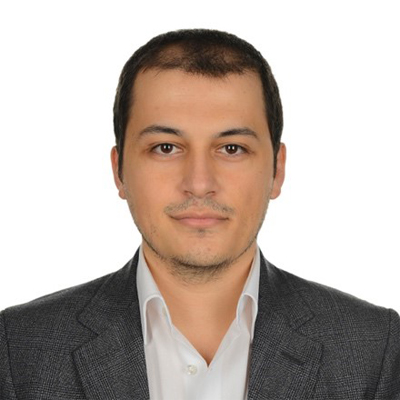Due to the changing regional dynamics after the Arab Spring, Turkey increasingly sees itself as a necessity to create new strategies in foreign and security policy by combining both soft and hard power tools. Turkey’s entry into a new era in its foreign policy implementation was also reflected in the country’s efforts to diversify its options in this regard. Most importantly, this shift in foreign policy is leading to a positive spillover of relations and influences from the economy to politics and then to security. Especially after 15 July 2016, the government started to use hard power as a diplomatic tool. It can be seen that the defense industry, as one of these tools, contributes to the foreign policy strategy from different perspectives.
According to the SIPRI (Stockholm International Peace Research Institute) report, Turkey realized 0.7% of the world’s arms sales in the 2016-2020 period, with an increase of 30% compared to the previous period (2011-2015), and ranked 13th in the list of arms exporting countries. When we look at its imports, it realized 1.5% of the world’s arms imports in the 2016-2020 period, with a decrease of 56% compared to the previous period (2011-2015). In the light of these figures, an evaluation made by SIPRI showed Turkey as one of the world’s brightest arms exporters. According to the assessment, the massive expansion of the arms industry in Turkey is part of a larger strategy and an increasingly aggressive foreign policy.
Turkish Armed Forces personnel are located in many geographies with different missions, Turkish weapons and Turkish military capability are exported to almost every continent. Fighting terrorists in Syria, the TAF provides training and equipment in Somalia. The Nigerian coast guard patrols with Turkish boats, the Azerbaijani army uses Turkish UCAVs in the war. When we look at the strategy of developing the defense industry in this framework and using it in foreign policy, it is seen that the main issues are power projection, reducing dependence on arms imports and the desire to increase arms sales capacities to other countries.
Strategic Capacity of Defense Industry
Above all, Turkey aspires to be a leading power on its own. The new Turkish foreign policy should not be understood as a shift towards the east (to Russia or China) within the alternative strategy, where global debates also maintain their warmth. Rather, it is an expression of the effort to take advantage of the rivalry between the great powers by keeping their relations in the east and west constantly but cautiously. In the last decade, Turkey’s ambition to become a regional power has been strengthened by developments in the Turkish aviation industry. The conflicts in the MENA (Middle East and North Africa) region, on the other hand, provided a platform for Ankara’s motivation to reflect its power by making its newly produced unmanned aerial vehicles operational. Turkey has turned to hard power tactics along with diplomacy to resolve perceived regional problems. While Turkish-made UAVs provide extra air power to the Turkish army; seen as effective tools to achieve the country’s new regional goals. For example, the Turkish army provided the UCAV/ UAVs to its ally in Libya, the Government of National Accord, to repel Haftar’s elements and recapture the coastal towns around Tripoli. Turkey’s intervention in the civil war in this way changed the course in Libya.
Emerging as a new UAV power in the global arena with Bayraktar TB-2, Turkey has made its name more popular in regional security discussions in the MENA region without hesitation to use these systems in different conflicts. The TSK is currently using more than 130 different types of UAVs in different regions beyond the borders of Turkey. Turkish UAVs are cheaper than US UAVs and unlike Israel, Turkey has test sites. The conflicts in Nagorno-Karabakh and Libya also brought invaluable experiences to the Turkish defense industry. In these successful operations, together with the Turkish UAVs, the sharp hard power capacity in Turkish foreign policy was confirmed in the deserts of North Africa and the Caucasus Mountains. One of the reasons that pushed Turkey to redouble its efforts to develop unmanned aerial vehicles lies in the purges that followed the July 15 attempt and particularly hit the air force. At the end of this process, which caused an imbalance between Turkey’s F-16 warplanes and fighter pilots, the Turkish Air Force had to renew its power components. So much so that the training of new F-16 pilots took up to four years, while the need for UAV pilots only nine months was considered an important gain.
Production of the Anatolian Amphibious Assault Ship, one of the major projects of the Turkish defense industry, continues with the potential to play a role as a playmaker. Although Anadolu will not carry as many aircraft as a normal aircraft carrier, it is known that it will still have its own fighter aircraft component. However, unlike a carrier, it will be able to deploy combat units, weapons, ammunition, main battle tanks and other vehicles to crisis areas and take part in landing operations with landing craft that it will carry in its dock. This capability will tremendously increase the Turkish navy’s force deployment capability. Thus, Turkey’s strategic intervention range will also increase. With this ship, which will strengthen the effective security efforts in the region as well as expand the geography of influence of the policies, the Blue Homeland, one of Turkey’s basic doctrines, will be supported and its capacity to exist beyond the MENA region will be expanded.
Turkish diplomacy and bureaucracy continue to work to remind the capacity of other strategic tools and munitions that Turkey has or is working on, both for the defense of Turkish territory and for effective intervention in the instability and conflicts envisaged or unforeseen in the Turkish state’s political influence geography. Turkey’s enthusiasm to reduce its dependence on arms imports was another factor that pushed Turkey to focus on manufacturing and using its own products as an alternative to arms imports. The US arms embargo that followed Turkey’s 1974 Cyprus Peace Operation reminded Ankara of the importance of having a defense industry to protect its national interests. The end of the Cold War also underlined the necessity of an independent defense sector.
Recently, Turkey’s removal from the F-35 joint strike fighter program by the USA and its constant threats with arms embargoes imposed by the European Union (EU), strained relations with more sanctions have created a catalyst effect for the Turkish defense industry. Developing projects in almost every field, Turkey has started to add national products to its inventory that will support the land, sea and air forces. Since the most costly of the imported defense items were air elements, it was inevitable to give weight to these works. The relatively low-cost air power provided by UAVs alongside helicopters and tactical aircraft was too attractive to be ignored by Ankara. Compared to conventional air force, armed drones save the costs of air operations from the millions of dollars that must be spent to purchase and consistently operate fighter jets from abroad. Combined with Turkey’s exponentially growing defense industry, Ankara saw no reason to import drones from elsewhere. The unit cost of Turkish Baykar TB2 drones is about 5 million US Dollars. This is much cheaper than the American MQ-9 Reapers (30 million US Dollars) or Israeli Herons (10 million US Dollars) and can compete with Chinese Wing Loong drones (1-2 million US Dollars).
Perhaps the most compelling incentive for Turkey to use domestic defense products, particularly UAVs, in different conflicts and with increasing frequency may be the country’s desire to promote these products for export and increase future arms sales. Turkish drones gained a global reputation after successful operations in Syria and Libya, which led some countries such as Qatar, Azerbaijan and Ukraine to purchase these weapon systems from Turkey. In return for Ukraine’s purchase of these systems, Turkey became the beneficiary of Ukraine’s centuries-old aviation history. Baykar company uses Ukrainian turboprop engines for its high altitude long endurance UCAV Akıncı, which is under development. Hungary, Bulgaria, Serbia, Morocco, Malaysia, Kazakhstan, Pakistan and Saudi Arabia are among the countries interested in purchasing Turkish drones. In October 2020, amid the then ongoing Karabakh war, Serbia announced its interest in Turkish UAVs, and in May 2021, an agreement with Poland made the first sale of these systems to a NATO country.
Turkey continues to take various initiatives to localize its production and increase its exports. In October 2020, Turkey and Ukraine signed a new military cooperation agreement, which reveals the intentions of the two countries to launch joint projects for the production of domestic warships and aircraft. The effects of this step taken despite Russia on the defense sector of the two countries should be evaluated for optimum political gain. In addition, Qatar’s defense industry investments in Turkey were also reported as a step that will yield returns in the shortmedium term.
While the USA, Germany, Oman, Qatar, Turkmenistan and Malaysia are the primary markets for Turkey’s exports of defense products, Turkey entered new markets such as Guatemala, Guyana, Tanzania, Trinidad and Tobago in 2019. However, none of the world’s leading arms importers such as Saudi Arabia, Iraq and Egypt are included in this list. Access to these markets is vital to ensuring the long-term sustainability of the industry, but the political climate and Ankara’s various foreign policy disputes make it a challenge for Turkish defense firms. Policy can be a major obstacle for the industry. Many foreign clients do not distinguish between the government’s position on foreign policy issues and the interests of Turkish defense companies as private entities. As a result, Turkish firms are unable to enter certain markets and are often left out in large regional defense forums.
Transformation of Turkish Defense Industry in Time of Pandemic
In the first period of the coronavirus pandemic, Turkey tried to take measures by temporarily transforming the opportunities it had in order to act quickly. For example, the Machinery and Chemical Industry Corporation, which produces equipment for the Turkish Armed Forces, has temporarily focused its work on protective and medical equipment, with the production of masks, medical overalls, safety glasses, surgical gloves and disinfectants. Technology company NANObiz worked in cooperation with the Ministry of Health and the Ministry of Industry and Technology, as well as the Presidency of Defense Industries, to produce test kits for the disease. ASELSAN and Baykar collaborated with Arçelik and Biosys to produce Turkey’s first domestic ventilator. Mass production of domestic ventilators was made and donations were made to some countries.
However, Turkish defense companies continued to make new defense agreements and offer systems to customers during this time. On March 23, India agreed to a 2.3 billion US Dollar agreement with the Turkish shipyard consortium TAIS to build five 45,000-tonne fleet support ships for the Indian Navy. ASELSAN signed agreements with Bahrain, Kazakhstan and an unidentified NATO member country for advanced remote-controlled stabilized weapon systems. In addition to these new agreements, President of Defense Industry Prof. Dr. İsmail Demir confirmed that Turkey continues to manufacture and deliver parts for the US F-35 jets, despite being suspended from the program some time ago due to Turkey’s purchase of the Russian air defense system S-400. The US was supposed to end Turkey’s involvement in the F-35, but work continued even during the pandemic, according to Demir.
It can be said that the pandemic conditions affect the Turkish defense industry much less for some political reasons. Although the World economy’s entry into a global recession, the shift of more assets from the defense sector to the health sector, and the slowdown in contracting and supply speed have caused a slowdown in production and exports in Turkey’s defense sector, it is seen that there is no decrease in the work and value capacity of the sector.
While the outbreak poses an unexpected challenge for the Turkish defense industry, it is believed to offer new opportunities to strengthen its international reputation. Defense companies will now have the opportunity to use conventional and conventional technologies and work on partnerships with other national companies to produce unique systems that go beyond typical defense product manufacturing. Since this opportunity will continue harmoniously with the global political restructuring process, it is seen as a strategic necessity to develop it in direct proportion to Turkish foreign policy.
Turkey’s target and vision is to make the Turkish defense industry 100% independent by 2053, to increase its export capacity to 50 billion US Dollars, and to include at least 10 Turkish defense companies among the world’s 100 largest companies, as stated by the President of Defense Industry Prof Dr İsmail Demir. It can only happen if it manages the risks brought by its proactive foreign policy correctly. This requires the political and economic support of the ever-expanding military capacity and the correct reading of the global conjuncture. The place of the defense sector in the increasing çivil discourse-military action equation in the world is beyond what can be seen.
This “Analysis” article was published in the August 2021 issue of C4Defence magazine.









